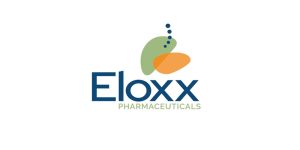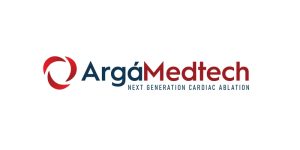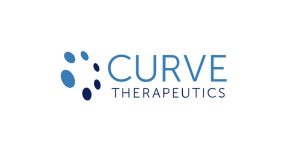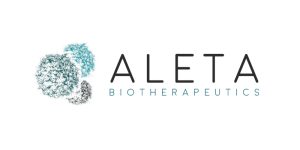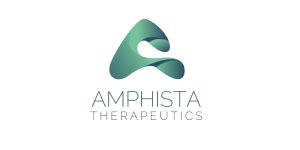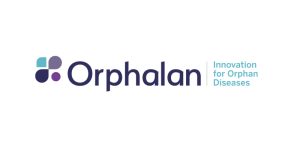Press Release.

AviadoBio Announces First Patient Treated in ASPIRE-FTD Clinical Trial Evaluating AVB-101 for Frontotemporal Dementia with GRN Mutations
• AVB-101 is an investigational gene therapy designed to deliver a functional copy of the GRN gene directly to the brain, thus restoring progranulin levels and potentially stopping disease progression
• Milestone marks first-in-human intrathalamic gene therapy delivery for any adult neurodegenerative disease
• ASPIRE-FTD trial will enroll patients at sites in Europe and the United States
LONDON — APRIL 15, 2024 — AviadoBio, a pioneering gene therapy company dedicated to developing and delivering potentially transformative medicines for neurodegenerative disorders, today announced that the first patient has been treated in the Phase 1/2 ASPIRE-FTD trial evaluating AviadoBio’s investigational gene therapy, AVB-101, in people with frontotemporal dementia (FTD) with progranulin (GRN) gene mutations (FTD-GRN). Clinical trial sites are currently open in Poland, Spain, and the Netherlands with additional sites expected to open in multiple countries, including the United States.
“AviadoBio is committed to bringing forward an innovative gene therapy treatment for FTD-GRN and this moment marks an important milestone for the FTD community and our company,” said Lisa Deschamps, CEO. “We are thankful for the dedication of the ASPIRE-FTD clinical investigators studying AVB-101 and immensely grateful for the families who participate in clinical trials for new treatment options that may change the future for generations of families living with FTD-GRN.”
FTD is a devastating form of early-onset dementia that typically leads to death within three to 10 years from diagnosis.¹,² People with FTD commonly experience personality changes, behavioral disturbance, loss of language, apathy, and reduced mobility.³ It is a leading cause of dementia in people under the age of 65 and is often misdiagnosed.⁴People with FTD who have disease-causing GRN mutations produce a reduced amount of progranulin protein. AVB-101 is a potential one-time therapy designed to stop disease progression by delivering a functional copy of the GRN gene to restore appropriate progranulin levels to affected areas of the brain.
“There is a critical need for new treatments for people living with FTD-GRN. The lack of effective disease-modifying treatments makes this diagnosis particularly difficult for patients and their families who don’t currently have any available treatment options for this devastating and progressive disease,” said David Cooper, M.D., Chief Medical Officer. “Treating the first patient in ASPIRE-FTD marks an important step forward in understanding AVB-101’s potential, which has already shown promise in preclinical studies.”
AVB-101 is delivered using a minimally invasive, stereotactic neurosurgical procedure directly to the part of the brain called the thalamus. The thalamus has extensive connections to other parts of the brain, including the frontal and temporal lobes, which play a critical role in FTD and the symptoms that impact patients and their families. This targeted delivery method aims to safely and effectively cross the blood-brain barrier, delivering targeted treatment directly to the brain to restore progranulin levels in the frontal and temporal cortex where it is needed most, while at the same time minimizing the dose required and thereby limiting any potential systemic exposure.
The Interventional Neurotherapy Center (INC) at Mazowiecki Szpital Bródnowski Hospital is the first and only center in Europe currently performing MRI-guided infusions of gene therapies. “Our team is excited to participate in this important scientific research and to perform the first intrathalamic administration of AVB-101 in the ASPIRE-FTD global trial,” said Prof. Mirosław Ząbek, M.D., Ph.D., the chairperson of the department of neurosurgery at INC.
“As a neurologist and founder of the Neuro-Care Clinic, I’ve seen the difficult struggles of my patients with dementia and their families,” said Gabriela Klodowska, M.D., Ph.D. “It means a lot to our patients with FTD to bring this type of study offering a potential one-time treatment for patients with a GRN mutation to Poland and to be the first to enroll patients in this global study.”
In November 2023, the U.S. Food and Drug Administration (FDA) granted Fast Track designation to AVB-101. Fast Track is a process designed to facilitate the development and expedite the review of new drugs to treat serious conditions and fill an unmet medical need. This designation is intended to bring new medicines to patients earlier. It has also received orphan drug designation by both the FDA and European Commission.
More information about the ASPIRE-FTD study can be found at https://clinicaltrials.gov/study/NCT06064890.
- Onyike CU. Neuroepidemiology. 2011;37:166–167
- Riedl L et al. Neuropsychiatr Dis Treat. 2014;10:297–310
- Pressman P and Miller BL. Biol Psychiatry. 2014;75(7):574–581
- Hendriks S, Peetoom K, Bakker C, et al. Global Prevalence of Young-Onset Dementia: A Systematic Review and Meta-analysis. JAMA Neurol. 2021;78(9):1080–1090. doi:10.1001/jamaneurol.2021.216
- Hogan DB et al. Can J Neurol Sci. 2016;43 (Suppl 1):S96–S109
- Moore KM et al. Lancet Neurol. 19(2):145–156
- Kansal K et al. Dement Geriatr Cogn Disord. 2016;41:109–122
- Galvin JE et al. Neurology. 89(20):2049–2056
- Young JJ et al. Ther Adv Psychopharmacol. 2018;8(1):33–48
- Kuang, L., et. al. Frontotemporal dementia non-sense mutation of progranulin rescued by aminoglycosides. Human Molecular Genetics 2020;29(4):624-634
About ASPIRE-FTD
ASPIRE-FTD is an open-label, multi-center, Phase 1/2 dose-escalation study designed to evaluate the safety and preliminary efficacy of AVB-101 in patients with FTD-GRN. In the study, patients will receive a single administration of AVB-101 delivered as a one-time infusion into the thalamus via a stereotactic neurosurgical procedure at expert neurosurgical centers throughout Europe and the United States.
About AVB-101
An investigational gene therapy, AVB-101 contains a correct (non-mutated) version of the GRN gene. It is designed to restore levels of progranulin in the brain, potentially slowing or stopping the progression of FTD-GRN. AVB-101 will be delivered as a one-time infusion directly into the brain via a minimally invasive surgical procedure, performed by a study neurosurgeon at a specialist neurosurgical center.
About Frontotemporal Dementia (FTD) and FTD with GRN Mutations (FTD-GRN
FTD is a devastating form of early-onset dementia that typically leads to death within seven to 13 years of symptom onset and three to 10 years from diagnosis.¹,² People with FTD commonly experience personality changes, behavioral disturbance, loss of language, apathy, and reduced mobility.³
FTD is a leading cause of dementia in people under the age of 65⁴ with an estimated prevalence at any one time of up to 4.6 cases per 1,000 people.⁵ FTD typically strikes younger than Alzheimer’s disease and the majority of FTD cases occur between 45 and 68 years of age.⁶,⁷ Given the early onset, FTD can have a substantially greater impact on work, family, and finances than Alzheimer’s disease.⁸ Genetic FTD cases account for about one-third of cases and are associated with autosomal dominant mutations in three genes, including the GRN (progranulin) gene.⁹ Approximately 11,000 people in the U.S. and EU5 are living with FTD-GRN with approximately 2,200 new cases per year.¹,¹⁰ Some FTD cases may be misidentified, and diagnostic delay is common. As disease education, genetics knowledge, and research and treatment options grow, these numbers are expected to increase.
About AviadoBio
At AviadoBio, we are relentlessly chasing cures by translating groundbreaking science and precision delivery into life-changing medicines for people living with frontotemporal dementia (FTD) and amyotrophic lateral sclerosis (ALS). With our deep understanding of the brain and suite of proprietary gene therapy platforms and delivery technologies, AviadoBio is working relentlessly to overcome the challenges of delivering the right drug to the right place. Its innovative, neuroanatomy-led approach is designed to maximize the therapeutic potential of gene therapy to halt or potentially reverse neurodegenerative diseases. AviadoBio was founded on pioneering research from King’s College London and the UK Dementia Research Institute and has a leadership team with extensive gene therapy development, delivery, and commercialization experience which uniquely positions the company for success in bringing transformative medicines to patients.
AviadoBio’s investors include New Enterprise Associates (NEA), Monograph Capital, F-Prime Capital, Johnson & Johnson Innovation – JJDC, Inc. (JJDC), SV Health Investor’s Dementia Discovery Fund (DDF), Advent Life Sciences, EQT Life Sciences (Dementia Fund), and LifeArc.
For more information, please visit www.aviadobio.com and follow us on X @AviadoBio and LinkedIn at AviadoBio.

